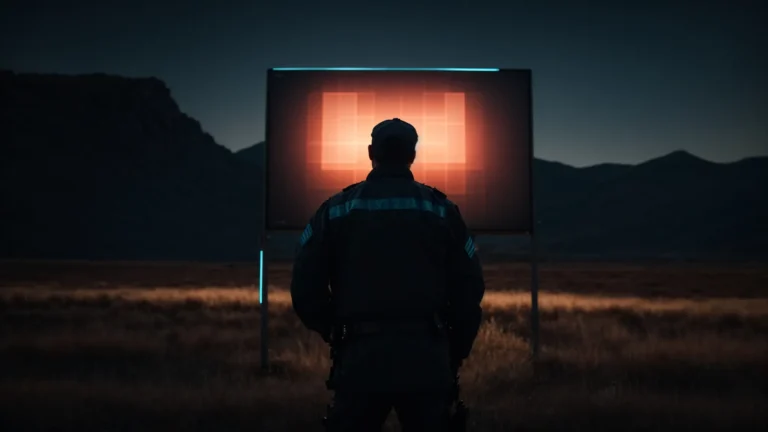Installing a fence in Aurora, Illinois requires more than just choosing the right materials and design. The city has specific permit requirements and building codes that every homeowner must follow to avoid costly violations and potential legal issues. Understanding these regulations before starting your project can save time, money, and frustration.
Aurora’s fence regulations exist to maintain neighborhood aesthetics, ensure safety, and protect property values. Whether you’re planning a privacy fence for your backyard or a decorative barrier for your front yard, a trusted local fence builder knows these requirements inside and out. The permit process might seem complex, but breaking it down into manageable steps makes compliance straightforward.
Understanding Aurora’s Fence Permit Requirements
Every fence installation in Aurora requires a permit, regardless of size or location on your property. This includes new installations, complete replacements where the old fence is entirely removed, and modifications to existing structures. The city takes these requirements seriously, and unpermitted work can result in stop-work orders and fines.
The permit application process begins with downloading the Fencing Installation Permit form from the City of Aurora website. Homeowners must provide detailed information including property address, owner contact details, and contractor information if using professional installation services. The application requires a current plat of survey showing fence heights and locations drawn to scale, along with total project cost estimates.
All applications must be submitted through Aurora’s eTRAKiT Online Portal system. Permit fees are calculated based on the total project value, and processing typically takes several business days. Before beginning any work, homeowners must also contact J.U.L.I.E. at 800-892-0123 for utility marking to prevent dangerous accidents during installation.
Properties in Historic Districts face additional requirements and must obtain a Certificate of Appropriateness by calling 630-844-3648. Homeowners association approval is also mandatory before work begins, regardless of permit status.
Aurora Fence Height and Location Restrictions
Aurora’s zoning ordinance establishes strict height limits that vary by yard location. Front yards are limited to 42 inches maximum height, while side and rear yards allow up to 6 feet. These restrictions help maintain sight lines for traffic safety and preserve neighborhood character.
Corner lots face special considerations due to their unique positioning. Exterior fences on corner properties are limited to 3 feet unless set back at least 5 feet from the property line. Through lots, which have street frontage on opposite sides, must follow front yard standards for rear fences unless the fence is set back 30 feet from the street.
Setback requirements are equally important for compliance. Front yard fences must be positioned at least 18 inches from the back of any sidewalk, while side yard fences require 4 feet minimum from sidewalk edges. When adjacent to public sidewalks, all fences need a 1-foot minimum setback.
Intersection sight lines receive special attention in Aurora’s code. Fences within 15 feet of street intersections cannot exceed 3 feet in height to maintain driver visibility. This safety measure prevents accidents and ensures emergency vehicle access.
All fence posts and footings must remain completely within property lines, and the finished side must face outward toward neighbors. Fences cannot extend into public right-of-way areas under any circumstances.
Approved Fence Materials in Aurora
Aurora permits several fence materials, but the city maintains strict standards for quality and appearance. Wood fencing must use pressure-treated lumber, cedar, redwood, or other naturally decay-resistant species. This requirement ensures longevity and prevents deterioration that could create safety hazards or neighborhood eyesores.
Metal options include ornamental iron, aluminum, steel, and wrought iron style fencing. All vinyl and PVC materials receive approval, making them popular choices for low-maintenance installations. Chain link fencing is permitted in side and rear yards but prohibited in front yards to maintain aesthetic standards.
Masonry materials like brick, stone, and decorative concrete masonry units are acceptable throughout properties. Composite wood products also meet city standards and offer durability benefits over traditional lumber.
The city prohibits several materials that could create safety hazards or detract from neighborhood appearance. Barbed wire is banned except in special districts, and electric fencing is not permitted for residential use. Wire mesh, chicken wire, broken boards, discarded materials, tarps, fabric materials, plywood, fiberboard, and garage door panels are all prohibited.
Design requirements mandate uniform height, material, type, and color throughout each property. The city defines open construction as less than 50% solid, while solid fences exceed this threshold. Wood and stockade fencing must include proper top rails, though decorative posts may extend 6 inches above maximum height limits.
Special Location Restrictions
Certain areas of properties face additional restrictions due to drainage and utility concerns. FEMA-designated floodways prohibit all fencing to maintain water flow during flood events. Drainage swales require minimum 6-inch clearance from ground level to prevent water backup.
Utility easements present unique challenges for fence installation. While not prohibited, the city recommends avoiding these areas since property owners remain responsible for repair costs if utility companies need access. Utility boxes and equipment cannot be enclosed by fencing under any circumstances.
Front yard specifications differ significantly from other areas. Open fence designs may reach 4 feet maximum height, while closed designs are limited to 3 feet. Chain link remains prohibited in front yards regardless of height. Driveway gates are permitted but must match the fence design and meet all applicable height restrictions.
Working with Professional Contractors
Professional fence contractors must maintain Aurora registration numbers and sign permit applications alongside homeowners. MW Legacy Fence Deck and other qualified local companies handle the entire permit process, ensuring compliance with all city requirements while managing timeline expectations.
Experienced contractors understand Aurora’s specific code requirements and can guide material selection based on location restrictions. They coordinate utility marking, manage inspection scheduling, and guarantee code compliance throughout the installation process.
The typical installation timeline spans 1-2 days for most residential projects, with permit processing adding several business days to the overall schedule. Professional contractors streamline this process and handle final inspection coordination with the Building Authority at 630-256-3130.
Inspection and Compliance
Aurora requires final inspections for all fence installations, regardless of size or complexity. Homeowners or contractors must schedule these inspections through the eTRAKiT system after completing installation work. The Building Authority conducts thorough reviews to ensure compliance with all applicable codes.
Common violations include installing without permits, exceeding height restrictions, using prohibited materials, and improper setbacks. These violations can result in stop-work orders, fines, and requirements to remove non-compliant installations entirely.
Cost Considerations and Resources
Permit fees are calculated based on total project value, with additional charges for properties in Historic Districts. These costs are typically minimal compared to potential violation penalties and should be factored into project budgets from the beginning.
Homeowners can access helpful resources through the City of Aurora website, including the eTRAKiT Online Portal for applications and the complete Zoning Ordinance for detailed requirements. The Building Permits Division at 630-256-3130 provides direct assistance for complex questions, while the Historic Preservation Division at 630-844-3648 handles special district requirements.
Understanding Aurora’s fence permit requirements and building codes protects homeowners from costly violations while ensuring installations meet safety and aesthetic standards. Working with experienced local contractors who understand these regulations simplifies the process and guarantees compliant results that enhance property value and neighborhood appeal.


